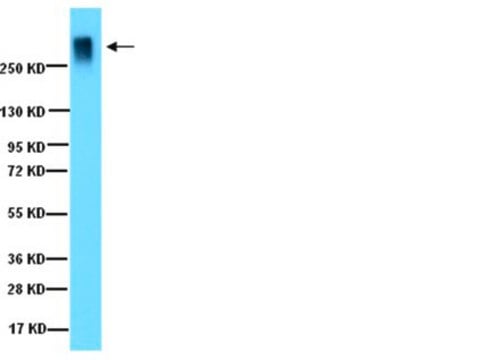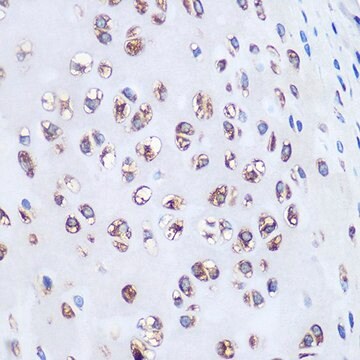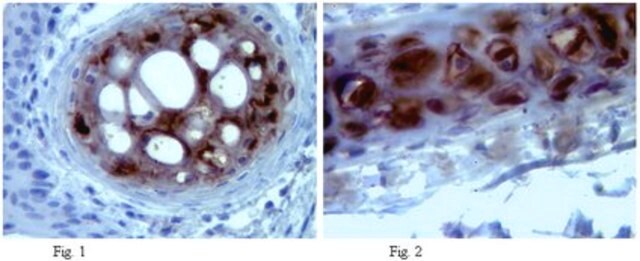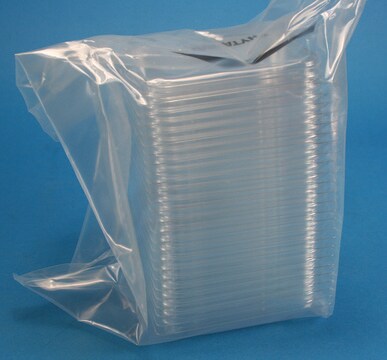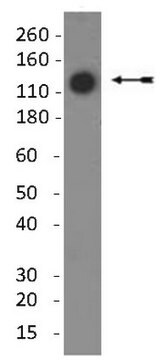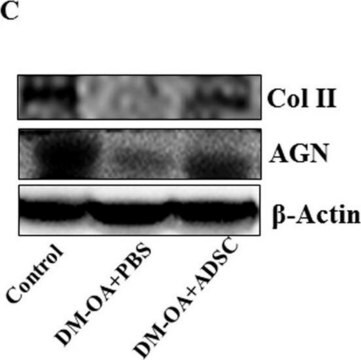MAB19310-C
Anti-Aggrecan Antibody, MMP Cleaved, clone AF-28, Ascites Free
clone AF-28, from mouse
Sinónimos:
Aggrecan core protein, MMP-cleaved, Cartilage-specific proteoglycan core protein, MMP-cleaved, Chondroitin sulfate proteoglycan 1, MMP-cleaved, Chondroitin sulfate proteoglycan core protein 1, MMP-cleaved, CSPCP, MMP-cleaved
About This Item
Productos recomendados
origen biológico
mouse
Nivel de calidad
forma del anticuerpo
purified immunoglobulin
tipo de anticuerpo
primary antibodies
clon
AF-28, monoclonal
reactividad de especies
bovine, porcine, human, rat, mouse
técnicas
immunohistochemistry: suitable (paraffin)
western blot: suitable
isotipo
IgG1κ
Nº de acceso NCBI
Nº de acceso UniProt
Condiciones de envío
wet ice
modificación del objetivo postraduccional
unmodified
Información sobre el gen
human ... ACAN(176)
Descripción general
Especificidad
Inmunógeno
Aplicación
Immunohistochemistry Analysis: A representative lot detected MMP-cleaved aggrecan in paraffin-embedded tibia sections from both wild-type mice and mice with decreased MMP-13 expression (Zhou, X., et al. (2010). Proc. Natl. Acad. Sci. U. S. A. 107(29):12919-12924).
Western Blotting Analysis: A representative lot detected a higher level of MMP-generated FFGV fragments in osteoarthritis/osteoarthritic (OA) cartilage than in normal cartilage samples (Struglics, A., and Hansson, M. (2012). Biochem. J. 446(2):213-223).
Western Blotting Analysis: A representative lot detected MMPs-digested G2 fragment from recombinant G1-G2, but not undigested, elastase- or trypsin-digested fragments (Mercuri, F.A., et al. (1999). J. Biol. Chem. 274(45):32387-32395).
Western Blotting Analysis: A representative lot detected MMP-13-digested fragments from human, pig, bovine and rat, but not shark, aggrecan. Clone AF-28 did not detect undegraded aggrecan (Fosang, A.J., et al. (1996). FEBS Lett. 380(1-2):17-20).
Western Blotting Analysis: A representative lot detected in vitro generated aggrecan fragments by MMPs, as well as various aggrecan fragments in arthritis patients-derived synovial fluids (Fosang, A.J., et al. (1995). Biochem. J. 310( Pt 1):337-343).
Cell Structure
ECM Proteins
Calidad
Western Blotting Analysis: 0.5 µg/mL of this antibody detected MMP-cleaved aggrecan in 10 µg of human chondrocyte tissue lysate.
Descripción de destino
Forma física
Almacenamiento y estabilidad
Otras notas
Cláusula de descargo de responsabilidad
¿No encuentra el producto adecuado?
Pruebe nuestro Herramienta de selección de productos.
Opcional
Código de clase de almacenamiento
12 - Non Combustible Liquids
Clase de riesgo para el agua (WGK)
WGK 1
Certificados de análisis (COA)
Busque Certificados de análisis (COA) introduciendo el número de lote del producto. Los números de lote se encuentran en la etiqueta del producto después de las palabras «Lot» o «Batch»
¿Ya tiene este producto?
Encuentre la documentación para los productos que ha comprado recientemente en la Biblioteca de documentos.
Nuestro equipo de científicos tiene experiencia en todas las áreas de investigación: Ciencias de la vida, Ciencia de los materiales, Síntesis química, Cromatografía, Analítica y muchas otras.
Póngase en contacto con el Servicio técnico